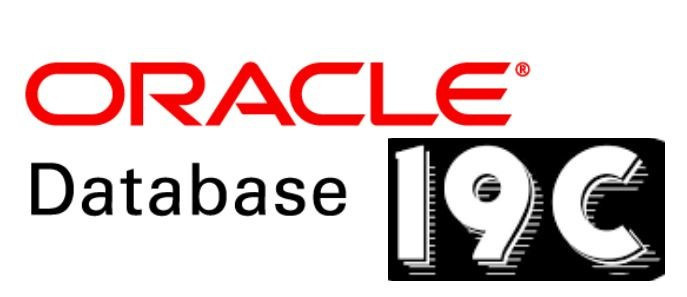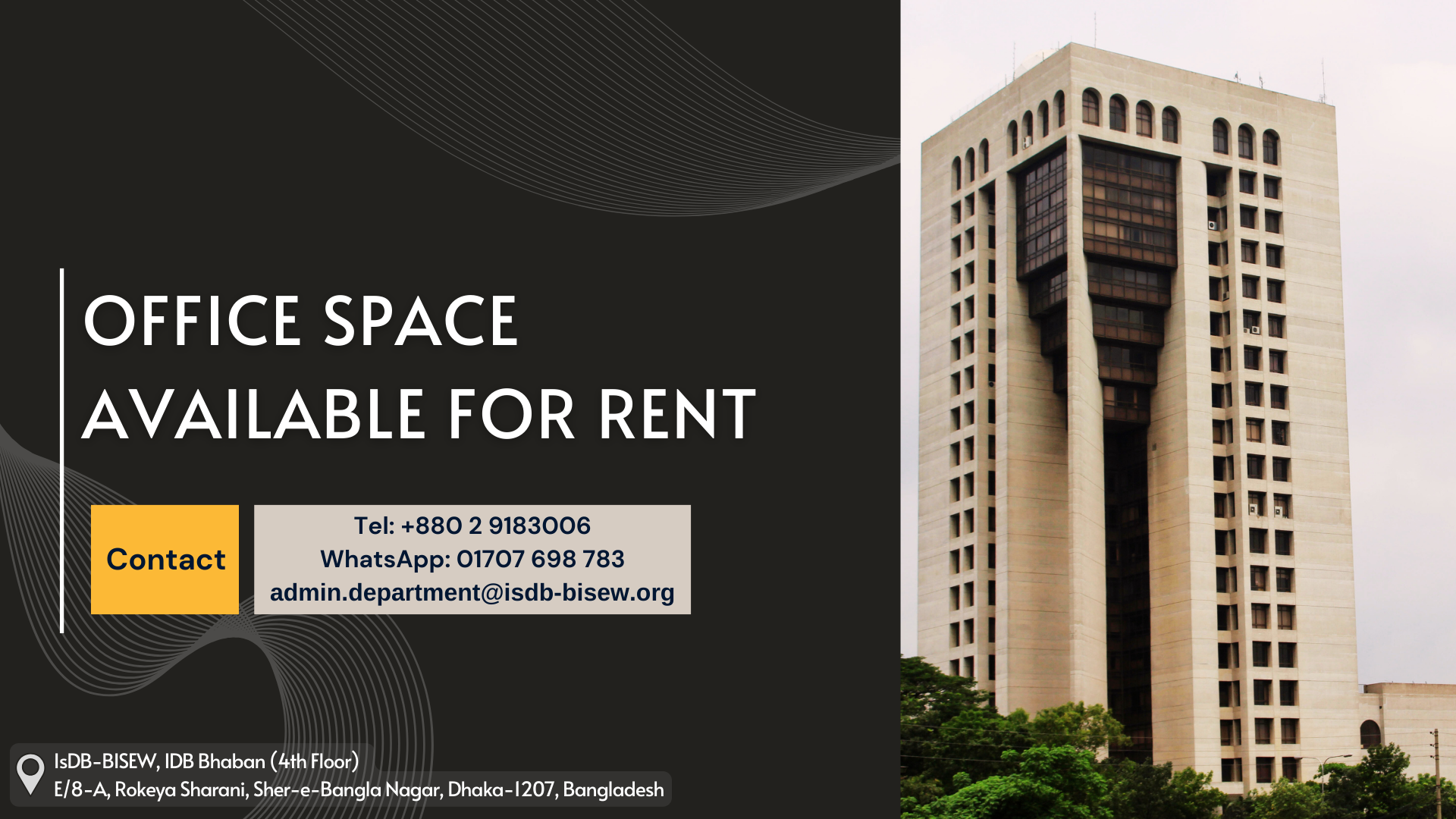Bi-monthly news update from IsDB-BISEW IT Scholarship Programme (September 2024)
Mar 04, 2025 / IT Scholarship ProgrammeEmpower

Welcome to the September 2024 issue of Empower, the periodic newsletter of the IsDB-BISEW IT Scholarship Programme. This edition includes the following topics of note:
-
Oracle Database - An Overview
-
Shamim's Story
Oracle Database – An Overview

The Oracle database forms an important part of the various training courses conducted under the IsDB-BISEW. Being the first successful commercial implementation of SQL, the Oracle database has always been at the forefront of technology, innovation and reliability. The following article gives the readers a brief synopsis of the Oracle Database 19c.
The Oracle database is one of the leading databases in the world. Commonly referred to as Oracle DBMS, Oracle Autonomous Database, or simply as Oracle, it forms an important part of the several courses in the IT Scholarship Programme. The following sections briefly introduces the Oracle database and its features and capabilities.
Oracle Database 19c
Oracle Database 19c is part of Oracle’s long-term support release family, and it brings a range of features for enhanced performance, high availability, and scalability, making it ideal for large-scale applications. As a multi-model database management system (DBMS), it supports relational, object-relational, and NoSQL architectures, making it versatile for a variety of industries.
- Introduction
Oracle Database 19c is designed to run on a range of environments, from cloud to on-premise setups. It builds on the innovations from previous Oracle versions and incorporates improvements in performance, machine learning, security, and autonomous operations. It’s often used in enterprise systems for managing large, mission-critical workloads.
- Technical Description
- Architecture: Oracle Database 19c continues the multi-tenant architecture, allowing users to run multiple databases within a single instance of the database engine. This improves resource usage and simplifies database management.
- Multi-model Support: Supports SQL, NoSQL, JSON, XML, and other data types, enabling applications to work with a variety of data models.
- In-Memory Technology: Oracle’s in-memory database features help boost analytical and reporting performance.
- Autonomous Features: Oracle 19c introduces more autonomous database management features, including automatic indexing and tuning, to reduce manual work for DBAs.
- Pluggable Databases: Supports pluggable databases (PDBs), which allows you to consolidate multiple databases into a single container for easier management.
Key technologies include:
- RAC (Real Application Clusters) for high availability and scalability.
- Data Guard for disaster recovery and data protection.
- Exadata Support for optimized hardware-software integration.
- Uses of Oracle Database 19c
- Cloud and On-Premise Solutions: Oracle 19c supports both cloud deployments and traditional on-premises database management.
- Enterprise Applications: Ideal for ERP, CRM, and other large-scale enterprise applications that demand reliability and performance.
- Data Warehousing: Frequently used in data warehousing because of its ability to manage large datasets, and support complex queries and analytics.
- Financial Systems: Commonly deployed in financial institutions for managing transactional workloads and ensuring data integrity.
- IoT and Big Data: Oracle 19c can handle IoT workloads due to its support for both relational and non-relational data, along with massive scalability.
- Benefits & Advantages
- High Performance: Oracle 19c is optimized for performance, with features like Oracle Real Application Clusters (RAC) and in-memory processing, which ensure faster querying and better throughput.
- Autonomous Database Capabilities: Automated tuning, patching, and backup reduce the workload on DBAs and allow for more efficient resource management.
- Security: Advanced security features such as encryption, data masking, and multi-factor authentication ensure robust protection for sensitive data.
- Scalability: Oracle Database 19c supports massive scaling of databases, making it suitable for global businesses with high transaction volumes.
- Support for Multi-Model Data: Oracle 19c supports structured, semi-structured, and unstructured data, enabling organizations to manage a wider variety of workloads.
- Cloud-Ready: Oracle 19c is fully optimized for hybrid cloud environments, providing flexibility in database deployment.
- Key Issues
- Cost: Oracle 19c is typically considered a premium solution, and licensing costs can be high for small-to-medium enterprises (SMEs).
- Complexity: The wide range of features and scalability options make Oracle 19c powerful, but also complex. It often requires highly skilled DBAs to manage and maintain effectively.
- Vendor Lock-In: Companies that heavily invest in Oracle's ecosystem can experience vendor lock-in, particularly if they leverage specific Oracle cloud services.
- Upgrade Path: Transitioning from older Oracle versions to 19c may require considerable planning and can be resource-intensive.
- Industry Uses
- Finance & Banking: Oracle 19c is widely used in financial institutions due to its support for high-volume transactional workloads, reliability, and security features. It’s commonly used for fraud detection, trading platforms, and core banking applications.
- Retail: Retail companies use Oracle 19c to manage complex supply chain operations, customer data, and analytics.
- Healthcare: Oracle Database 19c is used in healthcare for managing large amounts of patient data, running advanced analytics, and ensuring regulatory compliance.
- Manufacturing: Manufacturing industries rely on Oracle 19c for supply chain management, product lifecycle management, and quality control.
- Telecommunications: The telco industry utilises Oracle 19c for managing customer data, billing systems, and call detail record (CDR) analytics.
- Security Concerns
Oracle Database 19c provides numerous security features, including:
- Transparent Data Encryption (TDE): Encrypts sensitive data to protect it from unauthorised access.
- Data Masking: Masks sensitive information for non-production environments.
- Database Vault: Restricts access to data even from privileged users, ensuring separation of duties.
- Fine-Grained Auditing: Provides detailed auditing features to track data access and modifications.
- Multi-Factor Authentication (MFA): Enhances login security by requiring additional verification steps beyond just a password.
Despite these robust features, there are still security concerns:
- Misconfigurations: Complex configurations can sometimes lead to vulnerabilities if not properly set up or maintained.
- Patch Management: Failing to apply timely security patches may leave systems open to known vulnerabilities.
- Insider Threats: Even with strong access controls, insider threats can still be a risk, especially in environments where privileged access is poorly managed.
- Oracle Database in Cloud Environment
Oracle has expanded its database solutions to fully integrate with cloud technologies, providing powerful database options for enterprises looking to migrate, build, or scale their workloads in the cloud. Oracle Database in a cloud environment offers a blend of flexibility, performance, and cost efficiency, while leveraging cloud-native technologies and Oracle's long-established database functionalities.
Oracle’s cloud environment, known as Oracle Cloud Infrastructure (OCI), offers a variety of cloud database services, designed to support high-performance workloads with minimal manual management. OCI delivers a combination of infrastructure as a service (IaaS), platform as a service (PaaS), and software as a service (SaaS), making it a versatile platform for businesses of any size.
- Key Benefits of Oracle Database in the Cloud
- Cost Efficiency: Cloud databases eliminate the need for expensive hardware and physical infrastructure, shifting costs to a pay-as-you-go model. Oracle’s cloud pricing models allow businesses to only pay for the resources they consume.
- Scalability: Oracle Cloud databases can easily scale resources such as CPU, storage, and memory according to application demands without downtime. This is particularly useful for businesses with varying workload sizes, such as seasonal businesses or growing enterprises.
- High Availability: Cloud-based Oracle databases offer built-in high availability (HA) and disaster recovery (DR) features, including Oracle Real Application Clusters (RAC) and Oracle Data Guard, which help in maintaining uptime and protecting against data loss.
- Data Analytics & AI Integration: Oracle databases in the cloud are designed to integrate with cloud-native services like Oracle Analytics Cloud, AI services, and machine learning tools, enabling deeper insights from enterprise data.
- Simplified Management: Oracle’s Autonomous Database simplifies database administration by automating complex tasks like backups, performance tuning, and patching.
- Deployment Models for Oracle Database in the Cloud
- Public Cloud: Oracle's databases can be deployed in the public cloud on Oracle Cloud Infrastructure (OCI). It’s ideal for businesses looking for agility, rapid deployment, and minimal upfront costs.
- Private Cloud: Oracle offers Cloud Customer deployments where Oracle manages the database and infrastructure on-premises, providing the flexibility of the cloud while keeping the data within the organisation's own data centre.
- Hybrid Cloud: Businesses can extend their on-premise Oracle Databases into the cloud with a hybrid model, using services like Oracle Database Backup Cloud Service or Oracle Exadata Cloud Customer. This is especially useful for enterprises needing a bridge between legacy systems and new cloud-based solutions.
- Conclusion
Oracle Database 19c stands as a top-tier solution for enterprise database management, combining advanced features for performance, scalability, and security. Despite its complexity and cost, the benefits it offers in terms of high availability, data management, and support for multi-model data make it a go-to solution for large-scale operations across various industries. However, organisations need to carefully manage the system’s complexity, licensing costs, and security configurations to ensure they are maximizing its potential.
Shamim’s Story

Name: Md. Shamim Hossain, Smart Solutions Ltd, Mayo, Ireland
ID: 1185171
Course: J2EE
Round: 25
I am Md. Shamim Hossain and I want to share how the IDB-BISEW IT-Scholarship Programme shaped my career. After completing my Honors degree from the National University, I enrolled in the IT-Scholarship J2EE course in Round 25. Initially, I felt a bit frustrated as I lacked confidence in my ability to learn in the IT field and was also apprehensive about the job opportunities after the course. Fortunately, the IDB-BISEW authority secured a job for me one month before my course completion.
I began my career as a software developer at a Bangladeshi software company. While there, I worked with a client from Ireland on a small project, initially valued at only 50 euros. Despite the modest compensation, I dedicated myself to delivering the best possible results. The client was extremely pleased with my work and was very appreciative of the quality of my service. This positive collaboration led to a more substantial contract worth 600 euros monthly for a part-time job (20 hours a week).
I expanded the team by bringing in another IDB-BISEW graduate and three additional colleagues. After a year of hard work, the client visited Dhaka, rented a commercial space, and established a company in the city. I joined as a full-time employee with a handsome salary and immense responsibility. Now, we have almost 50 employees and two Branches in Dhaka (one in Mirpur DOHS, another in Naya Paltan). Today, I serve as the Software Architect in the company, participate in interview panels, and provide training to junior developers. I am responsible for selecting project structures, deployment strategies, and development methodologies, and I guide our team members and leaders accordingly.
More recently, I relocated to Ireland with my family to work closely with the client, address their concerns, and ensure the flexibility and efficiency of the systems we are developing. The IsDB-BISEW IT Scholarship has made my life far better than I could have ever imagined.



